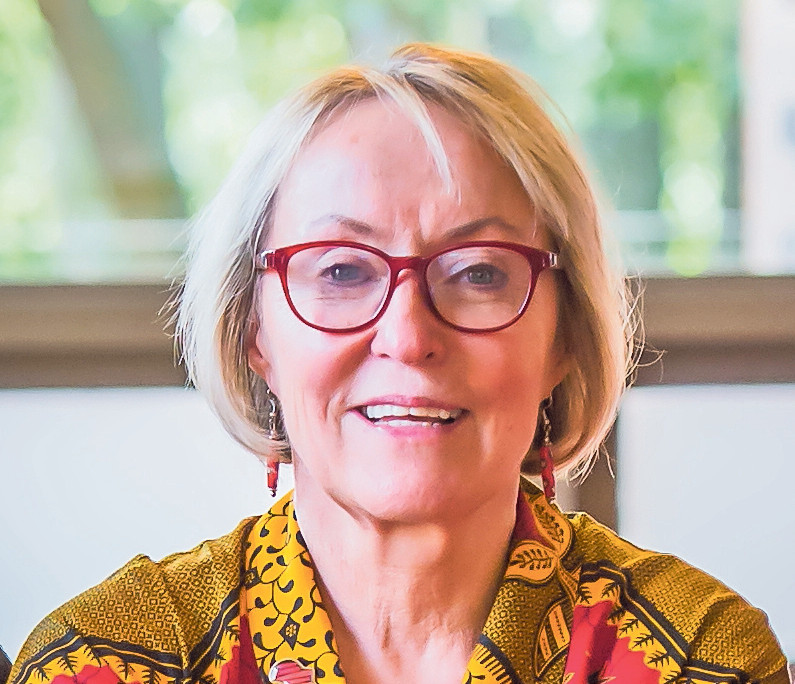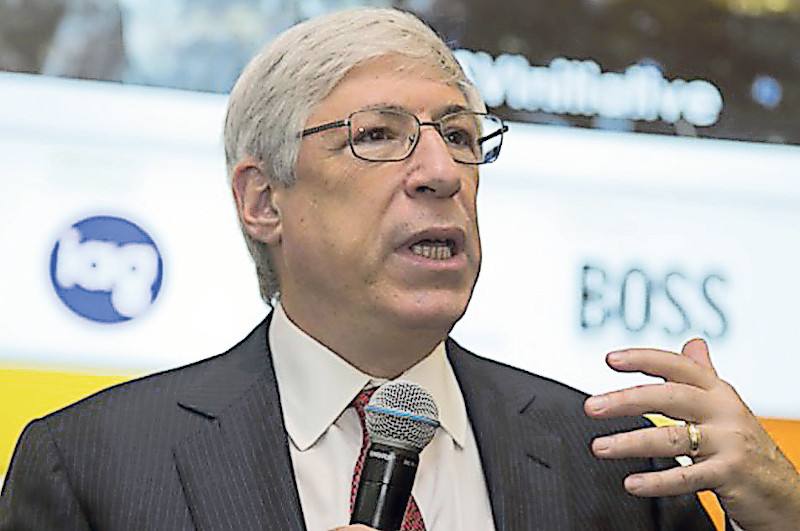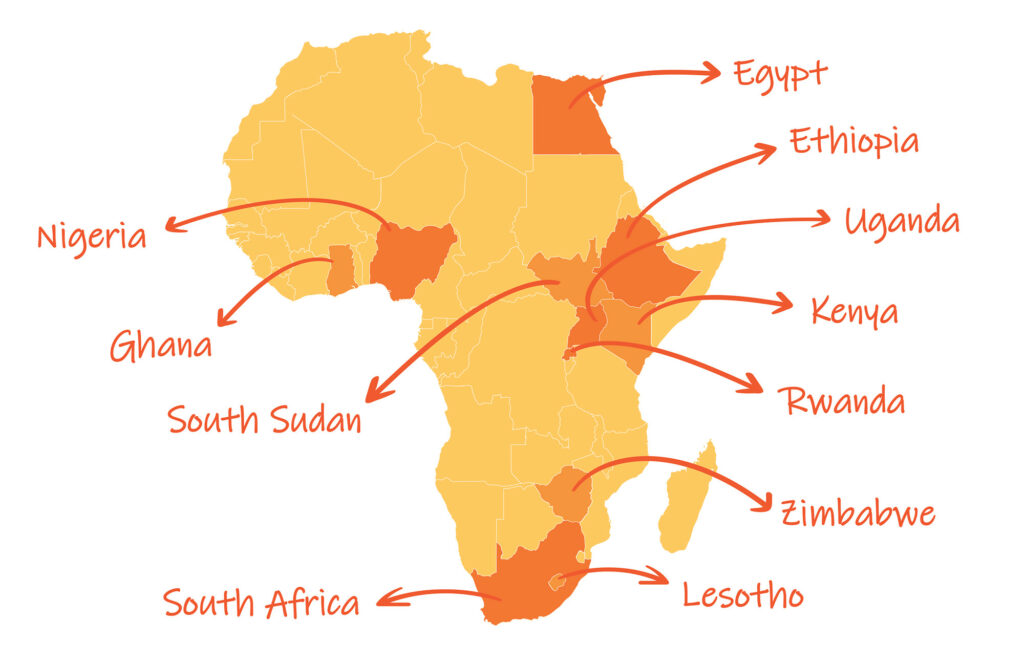Shared insights, shared value
“Globally, CEOs are realising that they cannot continue their business successfully in the same way they did before Covid-19,” says Shared Value Africa Initiative (SVAI) CEO, Tiekie Barnard.
On 4 June, SVAI hosted CEO Connect, a roundtable discussion and leadership engagement platform, convening the Shared Value Leadership community to discuss the importance of purpose-driven leadership and the role and responsibilities of business in creating sustainability — contributing to economic recovery and assisting to secure a future for all.
Professor Mark Kramer, co-creator of the shared value business concept with Professor Michael Porter, delivered the keynote address to business leaders from across the continent. “Of the 100 largest economic entities in the world, more than two-thirds of them are companies, not countries. And if we think about our daily lives, we have much more interaction and we are much more deeply affected by what companies do than by what philanthropists do,” he said. Kramer reflected on the past decade and stressed the core beliefs of shared value, principally that business has a social purpose.
SVAI aligns itself with the 17 Sustainable Development Goals set up by the United Nations in 2015 and the 2021 summit will focus on four goals. They are: Intra-Africa trade and the benefits of the African Continental Free Trade Area (AfCFTA); survival of the African entrepreneur; gender equality and economic growth; and the real meaning of inclusion in Africa. As 2021 marks the 10-year anniversary of the creation of the Shared Value Business Management concept, CEO Connect also forms part of a global celebratory programme in recognition of this milestone.
With the theme of “Competitive Collaboration in Africa — One Africa, One Voice”, the discussion benefited from insights shared by the likes of William Price, Country Manager, Enel Green Power Southern Africa; Iain Williamson, CEO, Old Mutual Ltd; Peter Ndegwa, CEO, Safaricom, and Adeolu Adewumi-Zer, CEO/MD, Allianz Nigeria Insurance. The event had the additional aim of providing action points and commitment from leaders to grow Africa’s economy in line with the goals and objectives of Agenda 2030.
SVAI will be hosting its annual Africa Shared Value Leadership Summit on 8 and 9 November 2021. The event will be a hybrid of in-person and digital talks after last year’s summit was hosted remotely due to Covid-19 restrictions.
For more information visit: https://svai.africa/
Collaborating for greater impact
For Tiekie Barnard, CEO of the Shared Value Africa Initiative, there’s no such thing as a solo venture; all organisations are connected and can benefit from the cultivation of a thriving ecosystem. We spoke to her about shared value, to explore her vision for building businesses based on bigger ideas than just the bottom line
 Tiekie Barnard, Founder and CEO, Shared Value Africa Initiative and Shift Impact Africa
Tiekie Barnard, Founder and CEO, Shared Value Africa Initiative and Shift Impact Africa
Mail & Guardian: What is shared value?
Tiekie Barnard: Some of us call it sustainability, some of us call it responsible business, but, for us, it’s about creating profit with purpose. As you’re making a profit, you’re sustainable as an organisation, but while you are making your money there is a positive outcome in the communities that you operate in.
What does “purpose” mean to shared value?
If you are profit-focused only, you aren’t going to think about how you affect society and you’re also not going to think about how you affect the environment. You’ll just tick those carbon boxes and pay the fine if you have to. We’re seeing organisations that are purpose-led, where your CEO is like a Peter Ndegwa of Safaricom, who understands that as an organisation you have a far bigger role to play in society other than just making money. Covid-19 showed us how inextricably linked business and society are. That’s the “purpose” part of shared value.
Can you provide an example of shared value?
Safaricom is an absolutely stellar example of an organisation that is creating shared value in Kenya. One of their many products is called Digifarm and has millions of farmers using the application. There were more than six different organisations involved in DigiFarm. Safaricom couldn’t do it on their own because they’re a telecoms company; they had to get a bank involved, a fertiliser company, agricultural experts and so on. The ecosystem just grows, and the business grows with it, because consumers become part of the ecosystem as it grows.
It’s almost as though it can only grow with collaboration. It subscribes more to the values of shared value to collaborate and expand in that way?
I think you’ve hit the nail on the head. Let’s say I take my little organisation and I grow tomatoes and I decide that I’m just going to do it for myself. What I haven’t done is that I haven’t learned that I need to treat the soil, I haven’t learned about what fertiliser I need to use, I don’t know when it’s going to rain or when it’s not going to rain because I didn’t tap into any cellphone company, you know what I mean? So you’re sitting there and you never get the scale. That’s what shared value is about, it’s about innovation, it’s about scale, it’s about growing and it’s about creating an equal society.
What is CEO Connect?
We’ve just had the first CEO Connect on 4 June where Mark Kramer, co-founder of the Shared Value Initiative and co-creator of the shared value concept, delivered the keynote address, and we’ve got another one coming up on 30 September. It started last year with a virtual CEO lunch.
Why is SVAI cross-continental?
It’s cross-continental because we realised that so many South African brands work across the continent, and we would have a much greater impact if we took on the continent rather than just focus on South Africa.
Why have you founded the Shared Value Africa Academy?
One of our mandates when we started was to create strategic partnerships with academic institutions, to get the shared value business management concept into executive short courses, and we’ve been fairly successful with them. We’ve just finished our first cohort with the Shared Value Africa Academy and our second cohort that starts in July is women-only. We are a women-owned organisation and it’s always been part of our DNA to support women entrepreneurs. In five years’ time, I would love the academy to be training and instilling shared value thinking in our young leaders across the continent.
Shared Value Africa Initiative is looking forward to its Africa Shared Value Leadership Summit in November?
The Africa Shared Value Leadership Summit is our annual flagship event. Our theme this year is One Africa, One Voice. The purpose of the summit is to bring together like-minded individuals, shared value practitioners, those who want to know more about shared value, and those who want to learn from each other. We talk about shared value, success stories, and the challenges we face and actions we can take to create economic growth across the African continent.
Shared value benefits us all
Of the 100 largest economic entities in the world, more than two-thirds of them are companies, not countries. And if we think about our daily lives, we have much more interaction and we are much more deeply affected by what companies do than by what philanthropists do. Philanthropy, of course, is important. But I’ve really come to see over these last 10 years that, if we are going to solve the world’s problems, it has to be with the leadership of business and it has to be with business approaching social problems as business opportunities — not as philanthropy, not as corporate social responsibility. Both of those things are important. Shared value does not replace them. But, what shared value is about is rethinking your strategy and business model in ways that align positive impact for society, with better economic performance for your company.
 Professor Mark Kramer, Senior Lecturer, Harvard Business School. He developed the Shared Value Management concept alongside Professor Michael Porter
Professor Mark Kramer, Senior Lecturer, Harvard Business School. He developed the Shared Value Management concept alongside Professor Michael Porter
As I reflect back on the 10 years of work in this space, I have to say, I am deeply hopeful, but also immensely frustrated. There has been a great deal of good news, but there’s been bad news as well.
In terms of the good news, there is no question that the world is moving toward shared value in its thinking about business and societal problems.
Different people use different words: some talk about inclusive business; some talk about mutual benefit; some use other terms. But all of it is focusing on the idea that business has a social purpose and that it needs to be accountable to its stakeholders; and it needs to ensure the success and wellbeing of its stakeholders if it is going to succeed.
There’s no doubt in my mind that this is the direction that business and society have been moving in and will continue to move. There is more and more evidence, as I work in this space, that social issues really are business opportunities. If you think about climate change, you know, 10 years ago, Tesla was a struggling startup that had just gone public at $17 dollars a share.
It’s now $600 dollars a share and one of the most valuable companies in the world. If I think about renewable energy, 10 years ago, renewable energy was nowhere close to parity with fossil fuel. Today it is more profitable than fossil fuel-fired power plants.
If I think about finance, 10 years ago, there was far less mobile banking and fintech. Today millions of people are able to access financial services through their cellphones who could not have done it before.
 SVAI is a pan-African organisation, and continues to grow its footprint across the continent
SVAI is a pan-African organisation, and continues to grow its footprint across the continent
When I think back on what I’ve learned over 10 years of working with companies, of teaching and studying shared value, there are a few insights that I want to share that I didn’t have 10 years ago.
The first one is the recognition that most companies in the world are operating on business models that were developed decades, and in some cases centuries ago, and they were developed to serve affluent customers in developed markets in the West. They do not serve the majority of people in the world. They ignored social and environmental impacts because they thought they were externalities. Decades ago, we didn’t know about climate change. Decades ago, we didn’t even know that smoking was bad for you. Nobody set out to create a company that would do harm. But as our knowledge of environmental and social issues has grown exponentially over the last decades, businesses are finding that their core business model doesn’t fit with what we know today. And they have a difficult challenge in figuring out how they can change, while at the same time keeping their shareholders happy and keeping their employees working.
I’ve come to see that there are three types of companies that embrace shared value.
Firstly, there are those that are born with a shared value vision. And Tesla is a wonderful example of that.
Secondly, there are those that are doing good things in the world, but with a shared value vision, they realise they can do much more. For example, pharmaceutical companies that are making drugs that cure disease. Of course, that’s creating shared value. But what many of them are now discovering is that there are ways to provide medical care in emerging markets, in rural populations, where there is not the usual distribution system that they depend on. It requires creating a whole new infrastructure, but they can do it.
Lastly, there is the third category of companies like ExxonMobil, where we now know their core business is harmful to the planet and they need to figure out how to change. And of course, that is the hardest shift of all.
I’ve learnt that philanthropy and development aid do not solve problems, because philanthropy tends to pick a single aspect of an issue. A single organisation will try and fund them to solve a major, complex problem. And you can’t do it by just focusing on one issue.
Development aid has been channeled to governments and has been very suspicious of engaging companies. But how can you do economic development without engaging companies? It doesn’t make sense …
For more information, please visit https://www.africasharedvaluesummit.com/
or email [email protected]